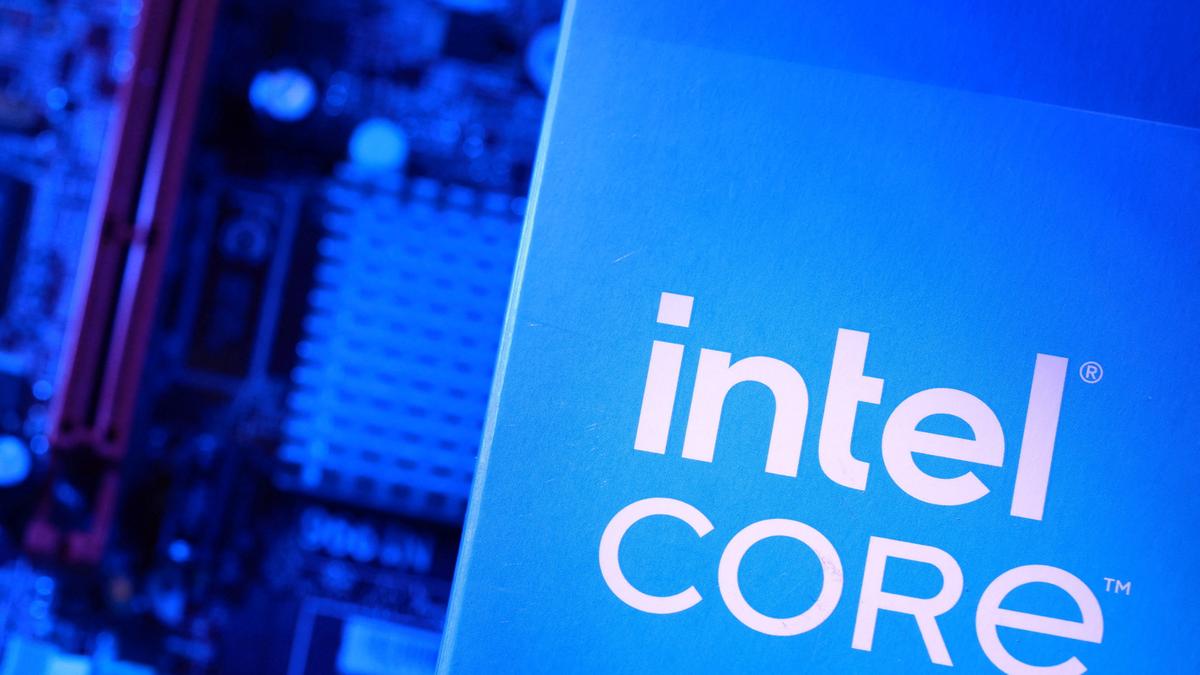Intel resists potential equity offer from US government
Business IndustryPosted by AI on 2025-08-20 05:29:16 | Last Updated by AI on 2025-08-21 14:31:42
Share: Facebook | Twitter | Whatsapp | Linkedin Visits: 0

Chipmaker Intel reportedly resists accepting a potential 10% equity offer from the US government, citing concerns about the company's independence and future innovations. Will the semiconductor champion succumb to the urge for oversight and financial support?
Yesterday's reports suggested that Intel had rejected a request from the US government to take a 10% stake in the company. Having sourced its information from "people with knowledge of the matter," Bloomberg's report claimed that Intel deemed the request to be unacceptable, pointing to concerns about giving up too much control over its operations and its independence.
Daniel Ives, a technology analyst at Wedbush, commented on the news via Bloomberg's article: "Ultimately, Intel management and the Intel board will have a lot of factors to weigh with this decision, including potential investor and strategic backlash, as well as the view that government intervention could hurt rather than help Intel's long-term strategic roadmap."
Potential investor backlash, alluded to here, is a known factor in declining investment opportunities, but the potential impact of external influence on Intel's roadmap is less clear. Certainly, the potential for government intervention blocking strategic decisions exists, but the impact depends on the situation.
The article concludes that Intel's reluctance to accept a 10% equity offer is in line with the company's historic stance of maintaining its independence. An unnamed spokesperson for the company is quoted as saying, "Our ongoing discussions with the Commerce Department and other government bodies are focused on providing assurance on supply chain security and providing ongoing support for US-based semiconductor manufacturing and research."
It remains to be seen whether the US government will continue to press the matter, seeking to bolster its semiconductor ambitions and increase domestic capacity, or whether Intel's stance will remain unchanged. Either way, it appears that there is no shortage of chips on the horizon for Intel.
Search
Categories
- Sports
- Business
- History
- Politics
- International
- Science & Technology
- Social Issues
- Disaster Management
- Current Affairs
- Education
- Startup Business
- Startup News
- Awards
- Community Services
- Fundraising Events
- Volunteer Services
- Health Initiatives
- Innovations and Initiatives
- In News
- dummybanners
- Awards
- Partners
- Products
- Press Releases
- News
- Fast Check
- South
- సినిమా
- Gallery
- Sunday Chronicle
- Hyderabad Chronicle
- లైఫ్ స్టైల్
- National
- క్రైం
- ట్రెండింగ్
- జాబ్స్
- అంతర్జాతీయo
- బిజినెస్
- రాజకీయం
- బిజినెస్
- సంపాదకీయం
- నవ్య
- చిత్ర జ్యోతి
- క్రీడలు
- జాతీయం
- తెలంగాణ
- తాజా వార్తలు
- మన పార్టీ
- మన నాయకత్వం
- మన విజయాలు
- డౌన్లోడ్స్
- మీడియా వనరులు
- కార్యకర్తలు
- North East Skill Center News
- Government Schemes
- Entrepreneurship Support
- Employment Opportunities
- Skill Training Programs
- Departments
- Investments
- Initiatives
- Resources
- Telangana IT Parks
- Events & Jobs
- Press Releases
- News
- Airport News
- Newtons Laws of Motion
- Karbonn in Business
- Investments in Karbonn
- Company quarterly sales
- Markets
- Auto News
- Industry
- Money
- Advertisements
- Stock target
- Company Updates
- Stock Market
- Company Sales
- Staffing and HR
- Constituency Assembly
- General News
- Srikalahasti Temple
- Bojjala Sudhir Reddy
- Technology & Innovation
- Sports
- Business
- Products
- Industries
- Services & Trainings
- Tools & Resources
- Technology Integration
- Drug Seizures & Arrests
- Telangana Narcotics
- Law & Enforcement
- Rehabilitation
- Nationwide Drug Policing
- Nigeria Seizures
- Global Operations
- Drug Awareness
- Drug Enforcement Tech
- NCB Drug Seizures
- Judicial Crackdown
- India's Surveillance Tools
- Cross-Border Links
- Women Safety
- Cyber Crimes
- Drug Abuse
- Traffic & Road Safety
- Community Connect
- Public Safety Alerts
- Citizen Assistance
- Nellore City News
- Politics & Administration
- Events & Festivals
- Agriculture & Rural
- Business & Economy
- Health & Wellness
Recent News
- Former Vice President Jagdeep Dhankhar Not Yet Requested Official Residence Retainment
- Mopping Up Operations In Lok Sabha, Speaker Om Birla Calls For Introspection
- Last-minute disruptions mark final day of parliament's monsoon session
- Market regulator SEBI plans to extend equity derivatives tenure
- Stock Picks for February: YES Securities & Sharekhan Optimistic About These 5 Companies
- Ban On Real-Money Gaming: 45 Million People Lose Rs 20,000 Crore Each Year, Says Report
- From Porn To Cricket: How Garth Stirrat Rebounds From An Unorthodox Start
- Rift In Saaniya Chandhok's Family? Grandfather Accuses Son of Forgery And Fraud